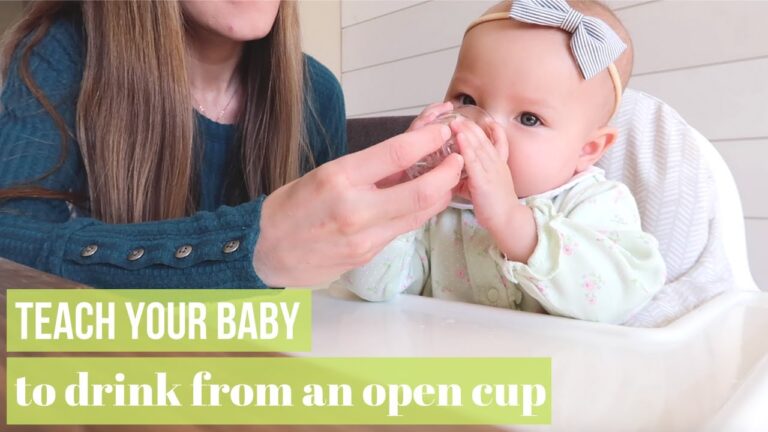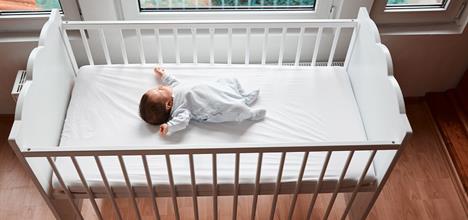How Long for Toddler to Adjust to New Baby: Expert Tips for a Smooth Transition
A toddler’s adjustment to a new baby can vary, but it typically takes a few weeks for regression to subside and for them to adapt to the new sibling. Providing support and understanding can help facilitate the process.
When a new baby arrives in the family, it’s not just the parents who face adjustments, but also the older siblings, especially toddlers. Introducing a new baby into the family dynamic can be challenging for toddlers, as they may feel a range of emotions such as jealousy, insecurity, and even regression in their behavior.
The process of adjusting to a new baby can vary for each toddler, but it generally takes a few weeks for them to settle into their new role as a sibling and accept the changes in the family dynamic. During this time, it is crucial for parents to offer support, understanding, and reassurance to their toddler, helping them navigate this significant transition. We will explore how long it takes for a toddler to adjust to a new baby and provide tips on how to facilitate the process smoothly.

Credit: takingcarababies.com
Understanding Toddler Adjustments
Adjusting to a new baby can be a challenging time for toddlers. They are used to being the center of attention, and the arrival of a new sibling can bring up a mix of emotions and adjustments for them. Understanding these adjustments can help parents provide the support and guidance that their toddlers need during this transition. In this section, we will explore the signs of toddler adjustment to a new baby and the common emotions experienced by toddlers during this period.
Signs Of Toddler Adjustment To A New Baby
Toddlers may exhibit various signs to indicate that they are adjusting to the presence of a new baby in the family. These signs can vary from child to child, but commonly include:
- Changes in behavior: Toddlers may exhibit changes in their behavior, such as clinginess, increased tantrums, or regressing to previous behaviors (such as bedwetting or thumb-sucking).
- Seeking attention: Toddlers may crave more attention from parents or become demanding to regain their share of attention.
- Acting out: Some toddlers may display challenging behaviors, such as hitting, biting, or being aggressive towards the new baby.
- Withdrawal: Other toddlers may withdraw or become distant, preferring to spend time alone rather than engage with the new baby or the family.
- Changes in sleep or appetite: Toddlers may experience changes in their sleep patterns, such as difficulty falling asleep or frequent night awakenings. They may also have changes in their appetite, eating more or less than usual.
Common Emotions Experienced By Toddlers During The Transition
The arrival of a new baby can evoke a range of emotions in toddlers. It is essential for parents to acknowledge and validate these emotions to help their toddlers navigate through this transition. Some common emotions experienced by toddlers during this period include:
- Jealousy: Toddlers may feel jealous of the new baby receiving attention and care from their parents.
- Confusion: Toddlers may feel confused about their changing role in the family and the new dynamics.
- Insecurity: Toddlers may feel insecure about their place in the family and question their parents’ love and attention.
- Anger or resentment: Toddlers may express anger or resentment towards the new baby for taking away their parents’ time and attention.
- Sadness: Some toddlers may feel sad or overwhelmed by the changes happening in their family.
Recognizing and acknowledging these emotions is crucial for fostering a healthy adjustment for toddlers. Providing reassurance, love, and support can help toddlers navigate through their emotions and adapt to their new role as an older sibling.
Factors Affecting Adjustment Time
Adjusting to the arrival of a new baby can be a challenging time for toddlers. Every child is unique, and the time it takes for a toddler to adjust to a new baby can vary. Understanding the factors that influence this adjustment time can help parents better support their child during this period. Here are two key factors that can impact the adjustment process:
Age Of The Toddler And Its Impact On The Adjustment Process
The age of the toddler plays a significant role in how they react and adjust to the arrival of a new baby. Younger toddlers, typically around 1-2 years old, may struggle more with the concept of sharing attention and resources with the new addition to the family. They might have difficulty understanding the changes happening around them and may exhibit regressive behaviors such as thumb sucking or bedwetting.
On the other hand, older toddlers, aged 2-3 years old, may have a better understanding of the situation and be more capable of expressing their emotions. However, they may also experience feelings of jealousy or resentment towards the new baby, as they might perceive the baby as a threat to their position in the family.
It’s important to note that regardless of the age of the toddler, their adjustment process can be facilitated with the right support and guidance from parents.
Parental Support And Its Role In Facilitating A Smooth Transition
Parental support plays a crucial role in helping toddlers adjust to the presence of a new baby. By providing reassurance, love, and attention, parents can help their child feel secure and loved during this challenging time.
Here are some ways parents can support their toddler’s adjustment:
- Give your toddler special and meaningful tasks related to the new baby, such as helping with diaper changes or choosing the baby’s outfit.
- Ask for your toddler’s advice or involvement when making decisions related to the baby.
- Encourage shared activities between your toddler and the new baby, such as reading stories together.
- Read books about becoming a big brother or sister to help your toddler understand their new role.
- Give your toddler the opportunity to express their feelings and listen to their perspective.
- Spend dedicated one-on-one time with your toddler to ensure they still receive individual attention.
- Allow your toddler some independence and freedom to do activities they enjoy.
By providing support, understanding, and patience, parents can help their toddler navigate the adjustment process and build a positive sibling relationship. Remember, each child is different, and the time it takes for them to adjust will vary. With consistent love and support, this transition can be a positive experience for the whole family.
Expert Tips For Helping Your Toddler Adjust
One of the most effective ways to help your toddler adjust to their new baby sibling is by promoting positive sibling relationships. Encourage a bond between the two by arranging activities where they can interact and play together. This will help foster a sense of connection and create a positive association with their sibling.
Giving your toddler special roles and responsibilities can make them feel important and involved in taking care of their new baby sibling. Assign tasks such as fetching a diaper or helping with gentle touches during feeding time. This will not only help them feel valued but also enhance their sense of responsibility and independence.
Reading books about the new baby sibling together can be a fun and effective way to introduce your toddler to the concept of having a new sibling. Choose age-appropriate books that depict sibling relationships and explore the emotions and experiences associated with a new baby in the family. This will help your toddler understand and relate to their own situation.
It is important to create safe spaces for your toddler to express their feelings about the new baby. Encourage them to talk about their emotions and actively listen to their concerns. Validating their feelings and offering reassurance can go a long way in helping them adjust and feel understood.
Amidst the new baby demands, it is crucial to carve out one-on-one time with your toddler. Dedicate specific moments in the day where you can focus solely on your toddler’s needs and interests. This undivided attention will not only make them feel loved and valued but also provide a sense of security during this period of adjustment.
Dealing With Jealousy And Regressions
It varies from child to child, but toddler regressions after a new baby can last for a few weeks. Providing support and identifying any underlying issues can help them work through it.
Recognizing Signs Of Jealousy In Toddlers
Toddlers often struggle to adjust to the arrival of a new baby, and one common emotion they may experience is jealousy. Recognizing the signs of jealousy in your toddler is essential in order to address and cope with their feelings effectively. Here are some signs to look out for:
- Increased clinginess towards parents
- Acting out or displaying aggressive behavior
- Regression in previously mastered skills, such as potty training
- Seeking attention by behaving in an exaggerated manner
- Expressing frustration or anger towards the new baby
Strategies To Cope With Toddler Jealousy Towards The New Baby
Fortunately, there are several strategies you can employ to help your toddler cope with feelings of jealousy towards their new sibling:
- Give them special jobs: Assigning your toddler special tasks related to the new baby can make them feel important and included. Whether it’s helping with diaper changes or choosing outfits, involving them in caring for their sibling can reduce jealousy.
- Ask for their advice: Seek your toddler’s opinion on decisions related to their new sibling, such as picking out a toy or deciding on a name. Their involvement will make them feel valued and lessen feelings of jealousy.
- Read stories about their new role: Reading books that focus on the arrival of a new baby and the older sibling’s role can help your toddler understand their new position in the family and ease feelings of jealousy.
- Encourage them to share their feelings: Create a safe space where your toddler can express their emotions about their new sibling without fear of judgment. Acknowledge their feelings and validate their experience to help them process and overcome jealousy.
- Spend one-on-one time with them: It is essential to allocate dedicated time to spend with your toddler alone, away from the new baby. This reassures them that they are still valued and loved, reducing jealousy.
Understanding Toddler Regression And Its Duration After The Arrival Of A New Baby
Toddler regression is another common response to the arrival of a new baby. Regression refers to a temporary backward shift in behavior or development. It may manifest in various ways, such as difficulty sleeping alone, thumb sucking, or increased clinginess. The duration of regression can vary from child to child, but typically lasts a few weeks. During this time, it is crucial to provide your child with support and reassurance.
By recognizing signs of jealousy, employing coping strategies, and understanding toddler regression, you can help your toddler adjust to their new sibling and navigate this transitional period with love and understanding.
Establishing Routines And Boundaries
When a new baby arrives, it is common for toddlers to experience a period of adjustment. They may feel overwhelmed by the changes and the attention shift in the household. This is why establishing routines and boundaries becomes crucial. Setting stable routines can provide a sense of security and predictability for both the toddler and the new baby. Additionally, setting boundaries and managing conflicts between siblings can help create a harmonious environment for everyone. In this section, we will explore the importance of establishing routines for stability, setting boundaries, and managing conflicts between siblings, as well as encouraging positive interactions and shared activities.
Importance Of Establishing Routines For Stability
Establishing routines is essential for providing stability and a sense of security to toddlers during the adjustment period with a new baby. Toddlers thrive on routine and predictability, as it helps them understand expectations and what comes next. Consistent routines can create a sense of stability and normalcy in their daily lives, which can ease their transition into having a new sibling.
Here are a few key reasons why establishing routines is important:
- Consistency: By following a consistent routine, toddlers can feel more secure and reassured about what to expect throughout the day.
- Sense of control: Routines empower toddlers by providing them with a sense of control and certainty in their environment.
- Smooth transitions: Having a structured routine helps toddlers navigate transitions more smoothly, reducing instances of tantrums or meltdowns.
- Bonding opportunity: Routines can also serve as special bonding moments between the toddler and parents, as they engage in activities together.
Setting Boundaries And Managing Conflicts Between Siblings
When a new baby enters the family, it is essential to establish clear boundaries and guidelines for both the toddler and the new baby. This helps create a harmonious environment and fosters positive interactions between siblings. Here’s how:
- Preparation: Before the new baby arrives, involve the toddler in preparation activities such as setting up the nursery or choosing baby items. This helps them feel included and builds a positive association with the new baby.
- Clear expectations: Set clear boundaries and rules for both siblings, such as respecting each other’s personal space and belongings. Communicate these expectations in simple, age-appropriate language.
- Supervision: Provide close supervision during interactions between the toddler and the new baby. This ensures the safety of both children and allows you to intervene if conflicts arise.
- Conflict resolution: Teach the toddler age-appropriate conflict resolution skills, such as sharing, taking turns, and using gentle touches. Encourage positive communication and problem-solving.
Encouraging Positive Interactions And Shared Activities
Promoting positive interactions and shared activities between siblings is key in fostering a strong bond and reducing any feelings of jealousy or rivalry. Here are some effective strategies:
- Sibling involvement: Encourage the toddler to participate in age-appropriate activities with the new baby, such as helping with diaper changes or gentle playtime.
- One-on-one time: Allocate dedicated one-on-one time with each child individually, where they can enjoy undivided attention from a parent. This helps strengthen the bond with each child and makes them feel valued.
- Shared interests: Identify shared interests or activities that both siblings can engage in together. This could be reading books, playing games, or even simple activities like singing songs or building blocks.
- Positive reinforcement: Acknowledge and praise positive interactions between the siblings. This reinforces behaviors you want to see more of and boosts their self-esteem.
By establishing routines, setting boundaries, and encouraging positive interactions, toddlers can adjust to their new sibling more smoothly. Remember, each child is unique, and the adjustment period can vary in duration. Patience, understanding, and consistent support are key as you navigate this transition together as a family.
Frequently Asked Questions Of How Long For Toddler To Adjust To New Baby
How Long Does Toddler Regression Last After New Baby?
Toddler regression after a new baby can last a few weeks, but it varies for each child. Providing support and identifying the cause can help them work through it.
How Can I Help My 2 Year Old Adjust To A Newborn?
To help your 2-year-old adjust to a newborn, try giving them special tasks and involve them in taking care of the baby. Read stories about their new role and give them some alone time. Acknowledge their feelings and let them express themselves.
It may take time for them to adjust, but with support and understanding, they will be able to adapt.
How Long Does A Toddler Take To Adjust To A New Sibling?
Toddlers may take a few weeks to adjust to a new sibling. Provide support, pinpoint any issues, and give them special tasks to help them through this transition.
How Long Will Toddler Be Jealous Of New Baby?
“Toddler jealousy of a new baby can last until they bond and develop emotional ties. It varies from child to child, but usually lasts a few weeks. Providing support and attention can help them adjust. “
Conclusion
The length of time it takes for a toddler to adjust to a new baby varies from child to child. While some regressions may only last a few weeks, others may take longer. By providing support and understanding, parents can help their toddler navigate this transition period successfully.
Engaging the toddler in special jobs, asking for their advice, and spending quality time alone with them can make a significant difference in helping them accept their new sibling. With patience and love, the toddler will eventually form emotional ties and reduce any feelings of jealousy towards the new baby.






